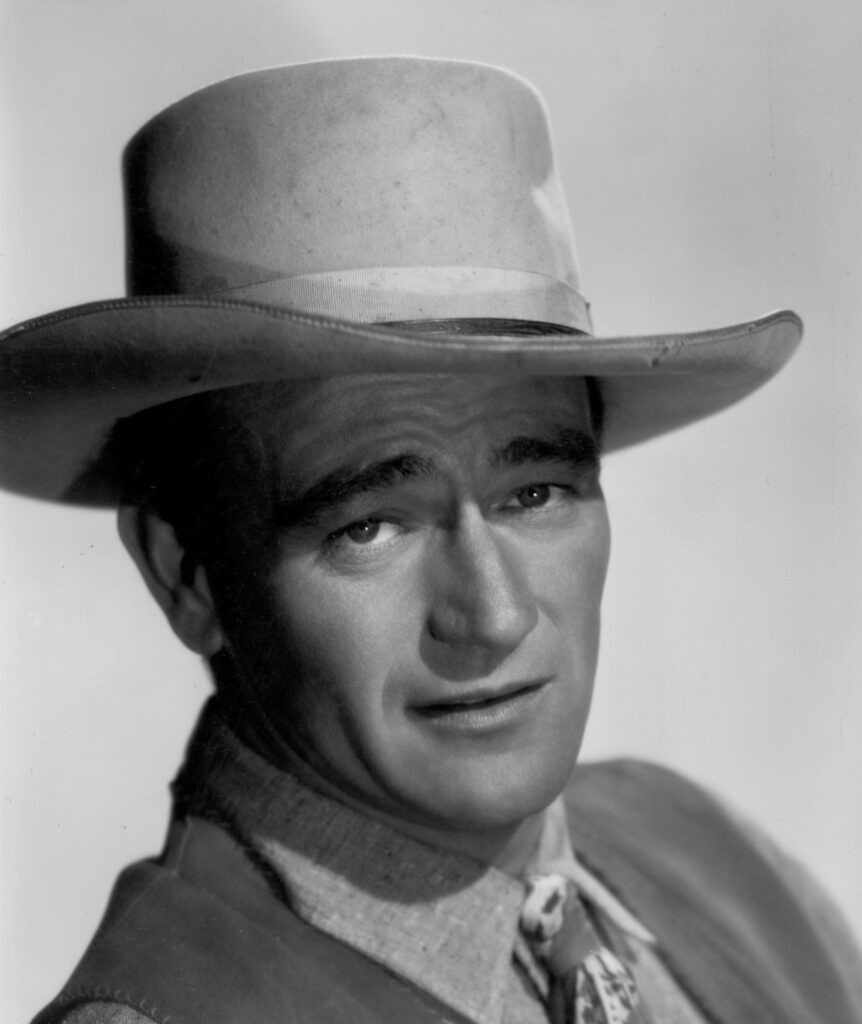John Wayne remains one of the most enduring figures in American cinema. Synonymous with the Western genre and embodying the rugged American hero, his career spanned over half a century and included more than 175 films. Even decades after his passing, he continues to be celebrated as a top movie star. To understand the man behind the myth, many fans often ask: When Was John Wayne Born?
Marion Morrison, the man who would become known to the world as John Wayne, was born on May 26, 1907. His birthplace was Winterset, Iowa, a small town that might seem a far cry from the Hollywood glitz he would later inhabit. Wayne’s early years were spent in Iowa before his family made a significant move to Southern California when he was just six years old. It was in Glendale, California, that Marion acquired the endearing nickname “Duke,” inspired by his beloved Airedale terrier of the same name. This nickname, far removed from his birth name, would stick with him and become a familiar moniker throughout his life, even as he transformed into the iconic John Wayne.
 Portrait of a young John Wayne wearing a wide-brimmed hat, embodying the Western hero persona that made him an American icon.
Portrait of a young John Wayne wearing a wide-brimmed hat, embodying the Western hero persona that made him an American icon.
Wayne’s path to Hollywood began to take shape during his time at the University of Southern California. Initially attending on a football scholarship, an opportunity arose that would change his life’s trajectory. He took a summer job at Fox Film Corporation. This wasn’t just any summer job; it was his entry into the world of filmmaking. It was here, on set, that he captured the attention of the renowned director John Ford. This connection proved pivotal, leading to early, minor roles in films. By 1930, his burgeoning career took a leap forward when he landed his first starring role in The Big Trail. Interestingly, the transformation from Marion Morrison to John Wayne was reportedly encouraged by Raoul Walsh, the director of The Big Trail. This name change marked a crucial step in crafting the persona that would become globally recognized.
The year 1939 marked a watershed moment in John Wayne’s career with the release of Stagecoach. This film catapulted him to stardom. From this point onward, his career experienced consistent success. While he is most celebrated for his roles in Westerns, Wayne’s filmography was remarkably diverse. He embraced roles in WWII epics, delved into police dramas, and even showcased his versatility in romantic comedies. Among his most celebrated works are films like Red River, The Searchers, and The Alamo, the latter of which he not only starred in but also produced and directed, demonstrating his multifaceted talent and ambition in filmmaking. Later in his career, notable films include McLintock!, The Green Berets, and True Grit. It was for his compelling performance in True Grit in 1969 that he received the coveted Academy Award for Best Actor.
Beyond his acting career, John Wayne was a staunch supporter of the U.S. military. He actively participated in entertaining troops through the United Service Organization (USO) during World War II and in Vietnam, demonstrating his patriotism and appreciation for service members. His contributions were formally recognized posthumously with the Congressional Gold Medal. Further highlighting his significance, in 1980, President Jimmy Carter bestowed upon him the Presidential Medal of Freedom.
John Wayne’s personal life included three marriages and seven children. In 1964, he faced a health challenge when diagnosed with lung cancer. Characteristically, he used his public platform to raise awareness about the disease. He successfully battled lung cancer but sadly succumbed to stomach cancer on June 11, 1979. His legacy of fighting spirit continued even after his death. His family established the John Wayne Cancer Foundation and the John Wayne Cancer Institute at St. John’s Hospital in Santa Monica, California, in his memory, solidifying his commitment to fighting cancer and helping others.
John Wayne’s birthdate, May 26, 1907, marks the beginning of a life that would leave an indelible mark on Hollywood and American culture. From his humble beginnings in Iowa to becoming a global icon, his story is a testament to talent, hard work, and the enduring appeal of the classic American hero.

